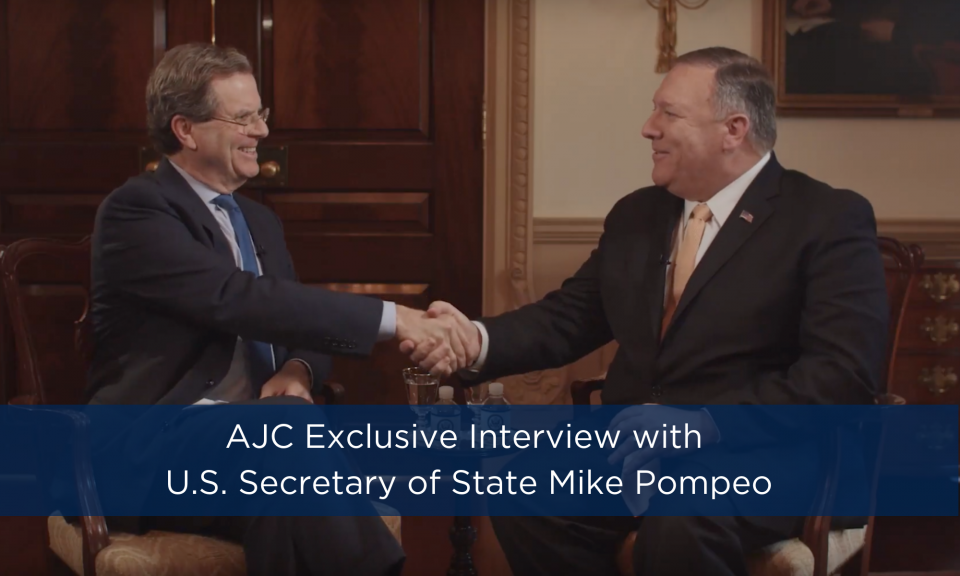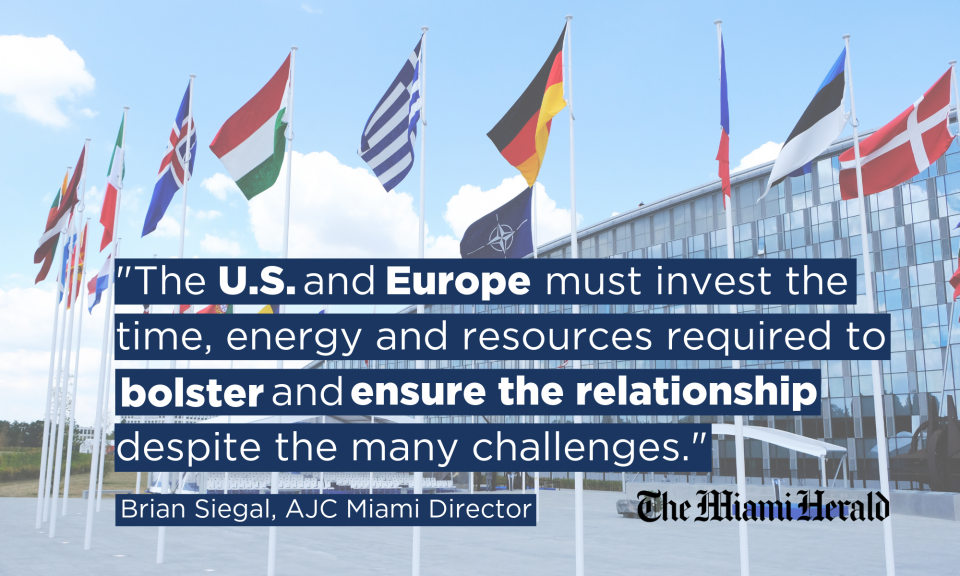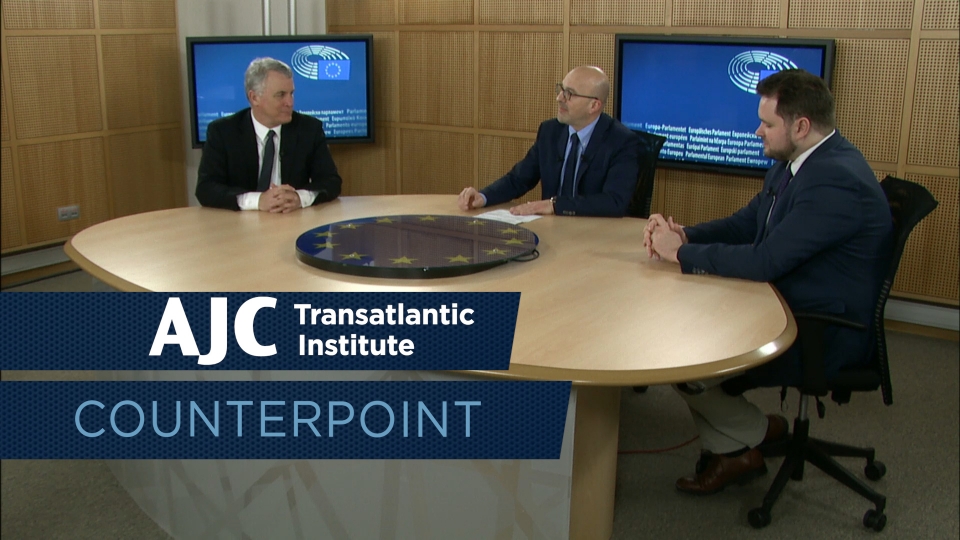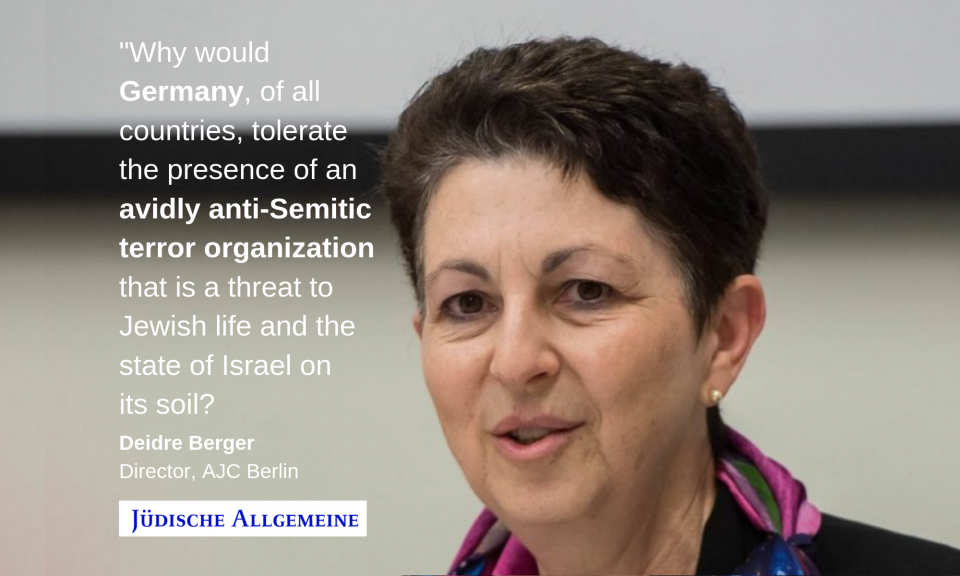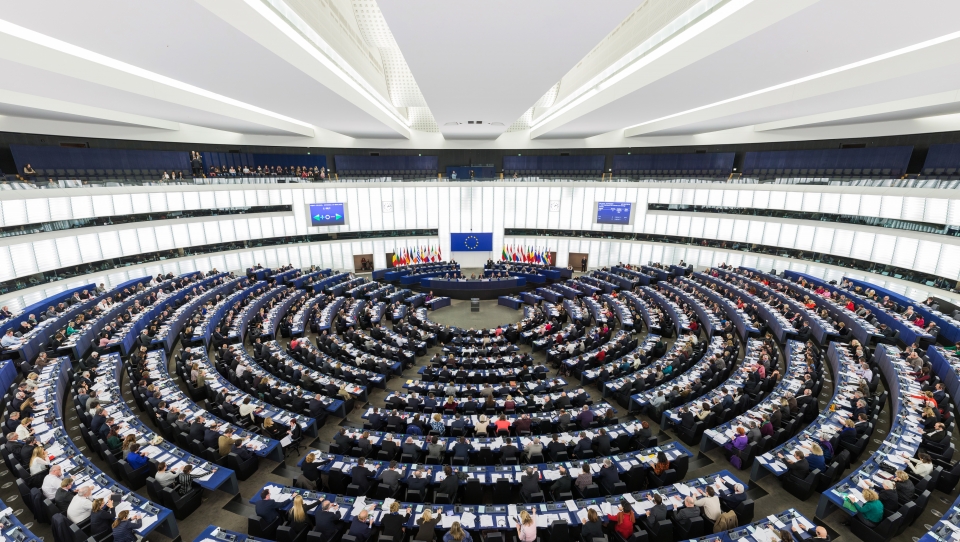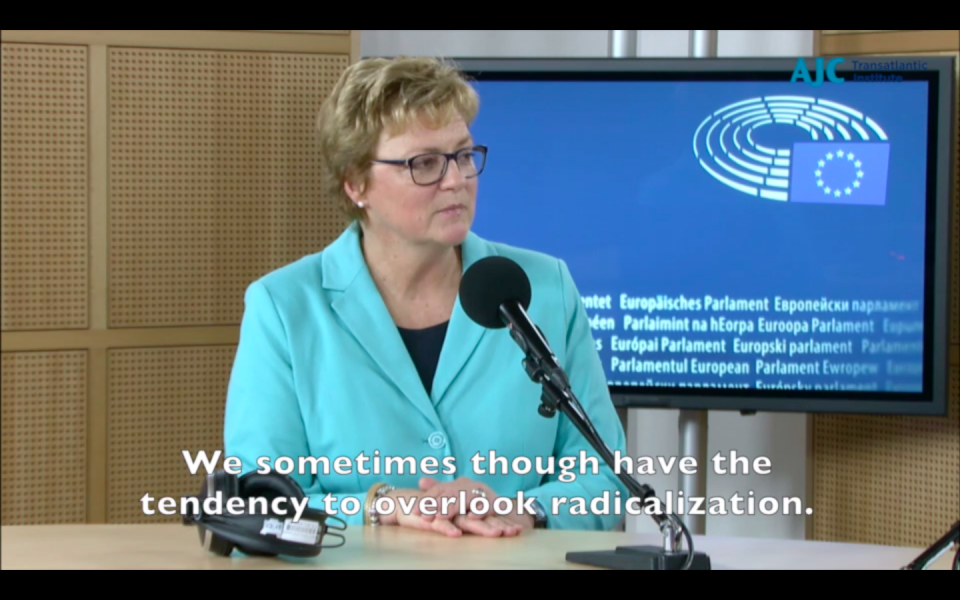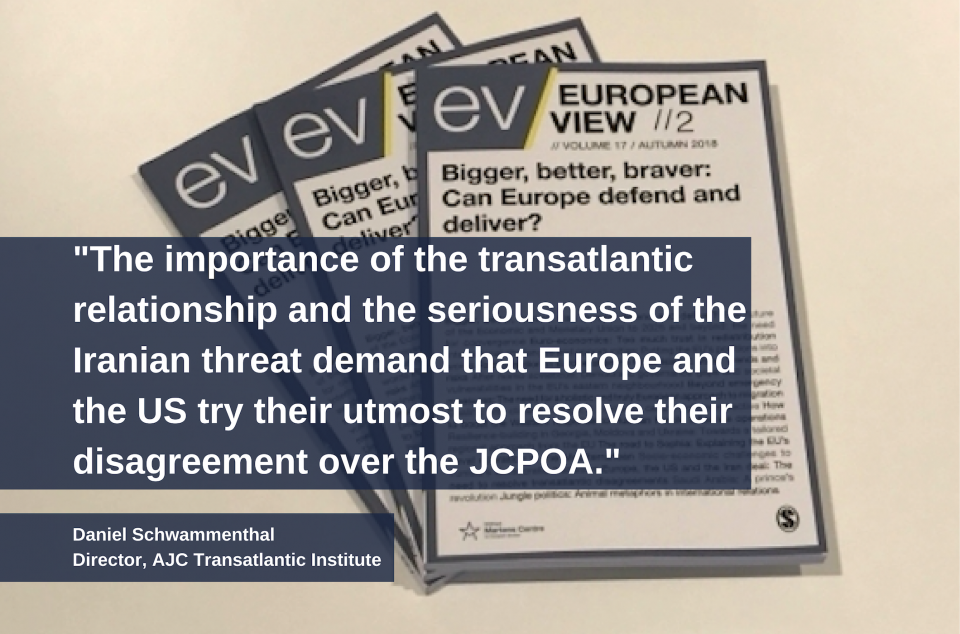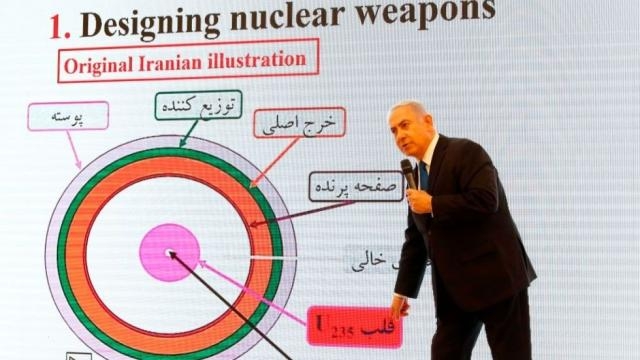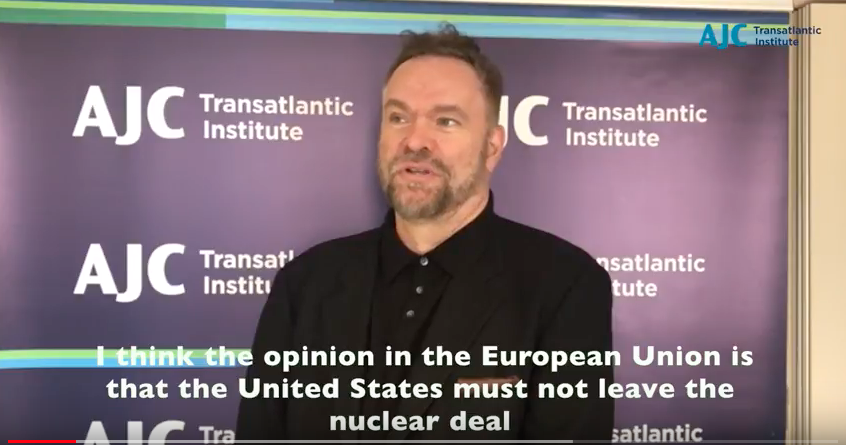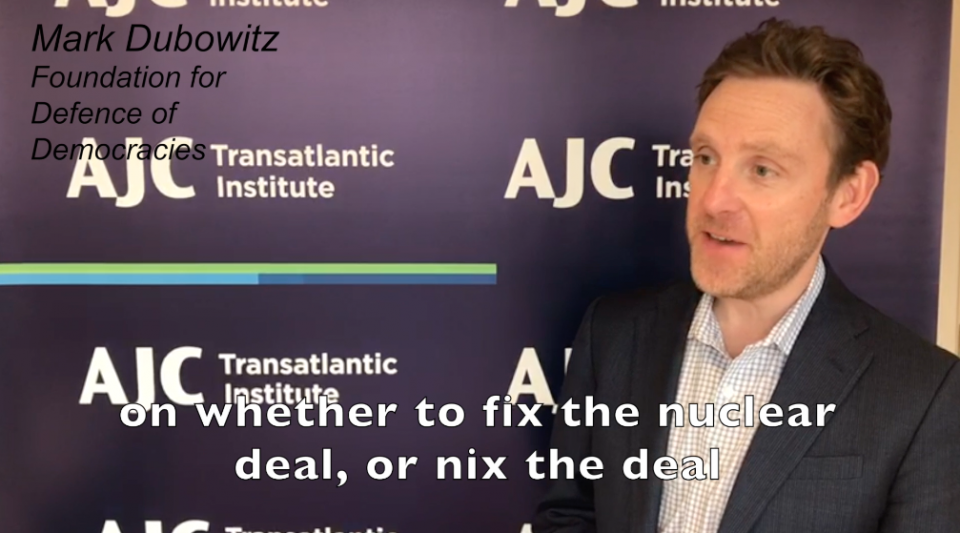Analysis
Finally, EU Makes Hezbollah Pay for Terror in Europe
By Daniel Schwammenthal
26 July 2013
"We are all Hezbollah now," London demonstrators chanted in 2006 as the Lebanese group rained missiles on Israeli civilians. The European Union decision to designate Hezbollah's military arm a terrorist organization won't cure the minds of such "anti-war" protestors, let alone end Hezbollah's crimes. But at least it will shine some much-needed sunlight on the terrorists and their sympathizers.
As Lithuanian Foreign Minister Linas Antanas Linkevicius, who chaired Monday’s meeting of EU foreign ministers, said: “We should name names because time comes to tell the truth." Actually, the time to do so had come long before.
Over a year ago, on July 18, 2012, Hezbollah blew up a bus in Burgas, Bulgaria, murdering five Israeli tourists and the Bulgarian driver.
Just 11 days earlier, police foiled a similar attack in Cyprus, for which a Cypriot court convicted a Lebanese-born Swedish citizen and Hezbollah member.
Hezbollah terror attacks in Europe, in fact, date back to the 1980s, when the group murdered Iranian dissidents in Germany and U.S. soldiers in Spain.
Hezbollah may have, at least until last year, refrained from further terror attacks in Europe. But it never stopped using Europe as staging ground.
Hezbollah has built an extensive European network, with 950 identified members and supporters in Germany alone. It uses the continent for fundraising, money laundering and recruitment. And as the Cypriot conviction of a Swedish-Lebanese dual national demonstrates, Hezbollah takes advantage of the ease of travel European passports provide.
And yet, the EU resisted listing Hezbollah for too long. Some member states were concerned about the safety of their U.N. troops stationed in Lebanon. Others argued, not very convincingly, that there wasn’t enough evidence.
The main argument against listing, however, was that Hezbollah is also involved in social and political activities. The group is part of the Lebanese government and the EU didn’t want to cut off its access to Beirut. That Hezbollah practices politics not exactly in Jeffersonian style was conveniently overlooked.
In 2005, for example, Prime Minister Rafik Harriri and 21 others were killed in a bomb explosion for which a U.N.-backed tribunal indicted four Hezbollah members. Hezbollah's tactics of coalition "negotiations" included a bloody takeover of Beirut in 2008. And Hezbollah uses its ill-gained political influence to advance radical Shia ideology that is deeply anti-Western and anti-Semitic.
But it was the recent Hezbollah attacks on European soil, combined with its murderous support for Syrian President Bashar Al-Assad's slaughter of his own people, which finally helped swing the debate toward listing.
However, to facilitate continued contacts with all political parties—i.e. Hezbollah’s political wing—the EU drew an artificial distinction between “military” and “political” arms, listing only the former, robbing the designation of its full potential.
An EU blacklisting of the entire organization would allow police to seize the terror group's assets and stop fundraising and recruitment. As it now stands, however, European authorities will have to prove that the activities directly benefit the "military" arm -- no easy task.
Nevertheless, the designation should give European counter-terrorism forces greater leeway for cross-border cooperation to investigate Hezbollah and hopefully prevent the next attack.
The designation's other main effect is political and shouldn’t be discounted. Because Hezbollah does dabble in politics, however violently, it needs legitimacy, or at least the veneer of it. Its survival depends on public support from the Shia community, where Hezbollah's image has already suffered due to the group's controversial support for Syrian President Assad.
The EU's terror designation can therefore help further weaken Hezbollah politically and erode its public support. Europe has finally demonstrated some resolve, however belated and qualified, sending a message of a more united West against terror.
Hezbollah must have thought it had found the perfect crime: hiding behind civilians to escape military retaliation and hiding behind its political “work” to protect itself from any diplomatic fallout. That game is now up.
Mr. Schwammenthal is the Director of the AJC Transatlantic Institute in Brussels.
